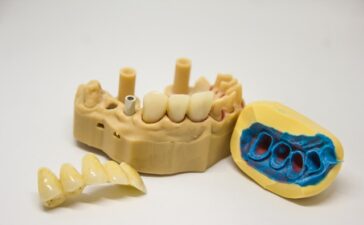Are you beginning to build your own aquarium? An aquarium filter is one of the most important elements that will keep your fish healthy and happy. But it might be difficult to find the best one for your tank because there are so many different types and sizes available. We’ve got you covered, so don’t worry! We’ll go over everything you need to know about selecting the ideal size and kind of aquarium filter for your aquatic pets in this blog post. So let’s get started!

Basics of Aquarium Filters
For your tank’s ecology to remain stable and healthy, aquarium filters are necessary. They function by clearing the water of trash, extra food, and other detritus. Ammonia levels can increase without a filter, stressing or sickening your fish.
Mechanical, chemical, and biological filtration are the three types available. Using foam or sponges, mechanical filtration physically removes particles from the water. Activated carbon is used in chemical filtration to eliminate contaminants like high nitrate levels that might harm aquatic life. Beneficial microorganisms are used in biological filters to change poisonous pollutants like ammonia into less dangerous ones.
It’s crucial to select an aquarium filter that matches the size and species of fish in your tank. A reasonable rule of thumb is to select a filter that can process at least two to three times as much water per hour as your tank.
For optimum operation, your aquarium filter has to be cleaned often. This entails clearing out any collected trash every few weeks and replacing specific parts every year.
Let’s examine the different types of aquarium filters in more detail now that we’ve covered the fundamentals.
Aquarium Filter Types
Aquarium filters come in three primary categories: mechanical, chemical, and biological.
In order to function, mechanical filters must physically catch waste and particles in the water. They often include a sponge or filter pad that collects debris when water flows past it. Regular maintenance is required for mechanical filters to prevent clogging.
To purify the water, chemical filters employ activated carbon or other materials. This kind of filter is very helpful for clearing the tank of odours, discolouration, and medicine residue. However, if your tank has a healthy ecology, chemical filtration may not always be required.
Biological filters encourage the growth of helpful bacteria that convert poisonous substances like ammonia and nitrite into less toxic ones like nitrate. These bacteria can be found on substrate, plants, rocks, or media that is especially made for your filtration system.
It’s critical to select a filter that meets your unique requirements depending on aspects like tank size, fish population, and preferred maintenance frequency. Depending on how your aquarium is set up, a combination of different sorts can also be required.
How to Select the Correct Aquarium Filter for Your Tank based on Size and Type?
Maintaining a healthy habitat for your fish depends on selecting the proper size and kind of aquarium filter. Finding out how much water is in your tank can help you choose the right filter size, which is the first step. In general, filters should be able to process at least four times as much water per hour as is contained in the tank.
The sort of filtration system you desire should then be considered. HOB filters are simple to install and keep clean, but they might not be as efficient as canister or sump filters. Although canister filters offer excellent mechanical and biological filtering, they need more upkeep than HOBs. Excellent filtration is provided by sump systems, which are often more complicated and expensive.

When choosing a filter type, it’s crucial to keep your fish’s demands in mind. For instance, you could want a stronger filtration system than you would if you only had a few little fish in a tank that was fully loaded with waste-producing species.
It all comes down to taking into account aspects like tank size, required filtration level, simplicity of maintenance, and money when deciding on the size and kind of aquarium filter. You can locate the ideal filter for your aquatic pets with careful thought and study.
Maintaining a healthy aquatic environment depends on selecting the proper size and kind of aquarium filter for your tank. The size of your tank, the species of fish or other residents, and your personal tastes will all affect which filter is ideal for you.
When choosing an aquarium filter, keep in mind to take into account elements like filtering capacity, flow rate, maintenance needs, and noise level. With so many possibilities on the market today, taking the time to investigate and consider several sorts will help you select the one that best suits your requirements.
A top-notch aquarium filter may help keep your fish happy and healthy while delivering a pleasurable viewing experience with the right upkeep. You’ll be well on your way to building a flourishing underwater habitat that you and your aquatic buddies will enjoy for years to come by adhering to these fundamental recommendations whether selecting a new filter or updating an existing one!






